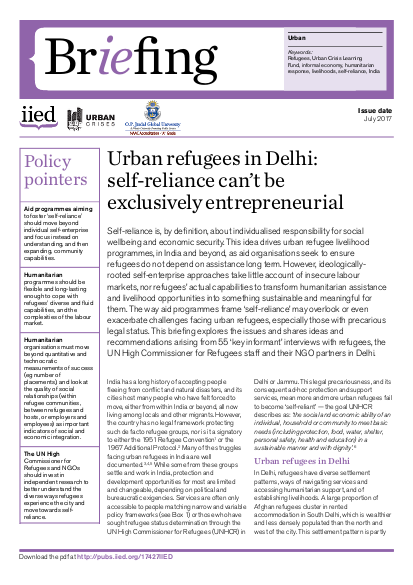
Self-reliance is, by definition, about individualised responsibility for social wellbeing and economic security. This idea drives urban refugee livelihood programmes, in India and beyond, as aid organisations seek to ensure refugees do not depend on assistance long term. However, ideologicallyrooted self-enterprise approaches take little account of insecure labour markets, nor refugees’ actual capabilities to transform humanitarian assistance and livelihood opportunities into something sustainable and meaningful for them. The way aid programmes frame ‘self-reliance’ may overlook or even exacerbate challenges facing urban refugees, especially those with precarious legal status. This briefing explores the issues and shares ideas and recommendations arising from 55 ‘key informant’ interviews with refugees, the UN High Commissioner for Refugees staff and their NGO partners in Delhi.
Links
Resource collections
- UN Habitat - Urban Response Collection
- Urban Response - Urban Crisis Preparedness and Risk Reduction
- Urban Response Collection - Community Engagement and Social Cohesion
- Urban Response Collection - Economic Recovery
- Urban Response Collection - Environment and Climate Change
- Urban Response Collection - Housing, Land and Property
- Urban Response Collection - Urban Crisis Response, Recovery and Reconstruction
- Urban Response Collection - Urban Resilience